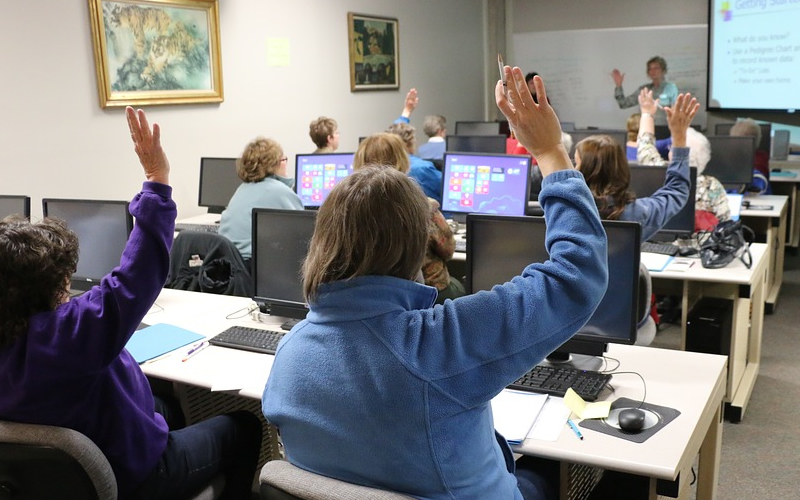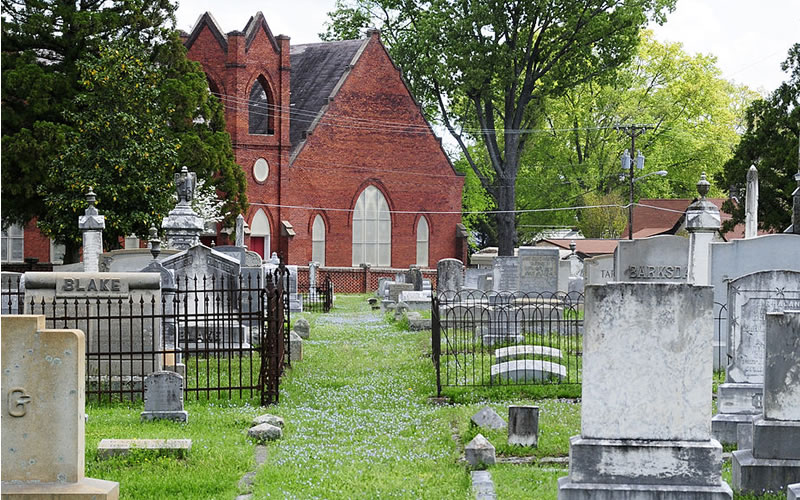 READER SURVEY: Share your priorities in new reader survey
READER SURVEY: Share your priorities in new reader survey
NEWS: Education tops priority list for lawmakers in 2019
BRIEFS: Budget-writing committee reorganizes, more
TALLY SHEET: Senators pre-file almost 300 bills to get things moving
COMMENTARY, Brack: Pay our teachers better
SPOTLIGHT: Municipal Association of South Carolina
MY TURN, Hillman: Let’s give student testing a rest
FEEDBACK: Less hat, more cattle on governing
MYSTERY PHOTO: Best sleuthing skills might be needed
S.C. ENCYCLOPEDIA: Park Seed Company
Share your priorities in new reader survey
![]() This week’s news story highlights what lawmakers want to do in the 2019 legislative session. But we’d like to give you a chance to sound off about your priorities.
This week’s news story highlights what lawmakers want to do in the 2019 legislative session. But we’d like to give you a chance to sound off about your priorities.
Therefore, we encourage you to take a 10-question survey to share your thoughts on the state’s challenges and priorities. The survey provides an opportunity for you to rank major issues and to provide us with information that we can share with you and legislators.
The deadline to complete the survey is Dec. 19. We’ll provide results in a coming issue. Your answers will be anonymous unless you provide your contact information to us, as outlined in the survey. Thank you.
NEWS: Education tops priority list for lawmakers in 2019

By Lindsay Street, Statehouse correspondent | South Carolina lawmakers appear poised to tackle big education issues in the state during the coming legislative session,, according to multiple lawmakers and a survey of elected leaders. The session begins Jan. 8.
Lawmakers listed education as a top priority and said increasing teacher pay and reforming the state’s education formula should be a part of improving public education for K-12 students.

“Education is at top of everyone’s list,” S.C. Rep. Jerry Govan, D-Orangeburg, told Statehouse Report.
That priority is also held by Republican leaders, such as House Speaker Jay Lucas, who championed education Dec. 4 after being re-elected as speaker.
Other items that are likely to receive attention from lawmakers include: utility reform, tax reform, increasing state employee pay, investing in flooding prevention, investing in strategies to reduce poverty, and investing in more transportation infrastructure, restructuring the state Department of Social Services, putting more constitutional offices under the governor, and improving health care access for poor people.
Who we spoke with
Last week, Statehouse Report sent a survey to all 124 S.C. House members and all 46 S.C. Senate members. Only 11 lawmakers — eight Republicans and three Democrats — returned the 10-question survey detailing their legislative priorities: Govan and House Republican Reps. Josiah Magnuson of Spartanburg, Gary Clary of Pickens, and Jonathon Hill of Pickens, as well as state Sens. Brad Hutto, D-Orangeburg, and Katrina Frye Shealy, R-Lexington. Five other respondents chose to remain anonymous.
Additionally, Statehouse Report spoke with eight other lawmakers: state Rep. Peter McCoy R-Charleston; newly-elected Rep. J.A. Moore, D-Charleston; House Ways and Means Chairman Murrell Smith, R-Sumter; Rep. Tommy Pope, R-York; and Rep. Gilda Cobb Hunter, an Orangeburg Democrat who has the most seniority in the House. We also spoke with state Sens. Marlon Kimpson, D-Charleston, and Sen. Tom Davis, R-Beaufort.
The survey asked 10 questions, including three questions that asked respondents to rank issues in order of importance and four questions asking respondents open-ended questions, allowing them to respond in fewer than 100 words.
Right or wrong direction
A majority of survey respondents (63.64 percent) said South Carolina was going in the right direction.

McCoy, who is now leading the House’s powerful judiciary committee, was among those that said the state is moving in the right direction.
“You’re going to see a change of leadership in the South Carolina House of Representatives, and you’re going to see more people getting involved,” he said.
Moore told Statehouse Report that he is encouraged by the 2018 election — particularly the First Congressional District’s election of Democratic candidate Joe Cunningham and the Richland County special Senate election of former state Democratic chair Dick Harpootlian. But, he added, “we have some work to do.”
Govan wrote why he said the state was moving in the wrong direction:
“The state is moving in wrong direction, not because good things are not happening economically but (because) I fear that we are not taking full advantage of the current positive growth and economic indicators to position ourselves for the future. (This is) similar to what happened between 1992-2000. Secondly, the state sought and was successful in vacating itself from the Abbeville (education case in 2018), which I believe will someday come back to haunt us.”
Priorities
Education — whether it was improving academic success or reforming education formula or teacher pay — was among the top priorities of nearly every lawmaker responding to the survey and in phone interviews with Statehouse Report.

“I’m anxious to hear what’s going to be put on the table and hope that it’s substantive and meaningful,” Cobb Hunter said.
McCoy said he expects the House to “tackle education quickly and early.” This week, the Senate released its list of pre-filed legislation. Of the 298 bills filed before session, 37 of them deal with education.
Survey respondents were also asked to rank reform issues in order of importance. Those that received the highest responses included:
- Utility reform;
- Tax reform;
- Reforming the state’s education formula;
- Restructuring the state’s higher educational institutions; and,
- Ethics reform for legislators.

Kimpson questioned whether tax reform would become a big issue in the 2019 session, saying he had not heard it discussed much among his colleagues. But in the House, Pope, who worked on tax reform in the 2017 session, said he wants it back on the table.
Survey respondents also ranked politically-charged issues in order of importance:
- Restructuring the state Department of Social Services;
- Restructuring state constitutional offices so more are directly under the governor; and,
- Improving access to health care for poor people.
McCoy said three issues are certain to spark a lot of debate in the House:
“There will be engaged debate on whether we sell Santee Cooper or not, how we finish out SCANA, and the education debate will have a lot of engaged banter where people will debate the merits of each proposal,” he said.
Among the politically-charged issues listed in the survey was closing the Charleston loophole, a state bill that would increase the time of a gun-purchasing background check for certain buyers. That response received six votes, and was called a “no brainer” by McCoy, who said it was a controversial topic that shouldn’t be controversial.
There also has been media attention lately about lawmakers pushing for stricter access to abortions in state in 2019. For Hill, Magnuson and an anonymous responder, it was listed as a top priority. In the weighted responses, this item received six votes, tying protecting the state’s water resources and protecting the state from offshore drilling in terms of importance among lawmakers. No lawmakers Statehouse Report spoke with listed it as a top priority.
However, as the House and Senate got tied up with abortion debates in 2018, there was concern the issue could again take the spotlight away from other issues like education.
“Do I foresee tough issues coming up that can tie up the Legislature? That happens every session,” McCoy said. “(But) I’m very confident in the leadership in the Senate and the House to get things done.”
- Have a comment? Send to: feedback@statehousereport.com
NEWS BRIEFS
BRIEFS: Budget-writing committee reorganizes, more
By Lindsay Street, Statehouse correspondent | The House Ways and Means Committee is continuing to reorganize after its longtime budget writer S.C. Rep. Brian White, R-Anderson, was unexpectedly ousted earlier this month.
![]() The new chairman is Rep. Murrell Smith, R-Sumter.
The new chairman is Rep. Murrell Smith, R-Sumter.
“I did not anticipate this coming,” Smith told Statehouse Report. He said his days have been filled with trying to reorganize the standing committee so it will be ready at the start of session in January. “I am swamped.”
This week, the committee released several documents for its legislative and budget-writing subcommittee reassignments.
The legislative subcommittees are:
- Economic development subcommittee, chaired by Rep. Dwight Loftis, R-Greenville;
- General government subcommittee, chaired by Rep. Gilda Cobb Hunter, D-Orangeburg;
- Property tax subcommittee, chaired by Rep. Nathan Ballentine, R-Chapin;
- Sales and use tax and income tax subcommittee, chaired by Rep. Alan D. Clemmons, R-Myrtle Beach; and,
- Revenue policy subcommittee, chaired by Smith.
- See the full list of subcommittee assignments.
The House also has several budget-writing subcommittees:
- Constitutional budget subcommittee will be chaired by Rep. Bruce Bannister, R-Greenville;
- Higher education budget subcommittee will be chaired by Rep. Gary Simrill, R-Rock Hill;
- Public education budget subcommittee will be chaired by Rep. Bill Whitmire, R-Walhalla;
- Healthcare budget subcommittee will be chaired by Rep. Bill Herbkersman, R-Beaufort;
- Economic development budget subcommittee will be chaired by Rep. Leon Stavrinakis, D-Charleston;
- Law enforcement budget subcommittee will be chaired by Rep. Phillip Lowe, R-Florence;
- Transportation and regulatory budget subcommittee will be chaired by Rep. Shannon Erickson, R-Beaufort; and,
- Proviso budget subcommittee will be chaired by Rep. Kirkman Finlay, R-Columbia.
In other recent news:
Election commission nominees. Gov. Henry McMaster has announced four appointments to the five-member S.C. State Election Commission, replacing four members of the commission serving in expired terms of office. The fifth seat will remain vacant until further notice. The four appointees are: former Kershaw County Councilman John Wells, retired Mount Pleasant businessman Cliff Edler, Chapin business owner Scott Moseley, and former state Democratic Party executive director Amanda Loveday.
Use of childhood education funds. South Carolina ties for 23rd nationally for how efficiently it administers federal dollars for early care and education programs, according to a new Bipartisan Policy Center report. South Carolina scored slightly above the national average for how efficiently it administers these funds. The report suggested McMaster’s administration could co-locate and support coordination between programs that serve young children, eliminating duplication and fragmentation of the programs that create barriers for families.
Waffle House representation. A researcher compiled one of the tastiest indexes yet for South Carolina lawmakers: a look at the number of Waffle Houses per 100,000 people by House district and Senate district. Who has the greatest number of Waffle Houses in their district? Rep. Michael F. Rivers Sr., D-Beaufort, and Rep. Rick Martin, R-Newberry, have some of the most Waffle Houses in the House. In the Senate, Hugh K. Leatherman Sr., R-Florence, and Sen. Nikki Setzler, D-Columbia, are among the chain’s All-Star Specials. Read the Twitter thread here.
House pre-files coming. The Senate got to take all the headlines this week with its release of pre-filed legislation — a whopping 298 bills were filed. Next week it will be the House’s turn. Click here on Dec. 18 to see pre-filed House bills.
Looking ahead
Click below for other items coming up in the Statehouse:
- House calendar
- Senate calendar
- Have a comment? Send to: feedback@statehousereport.com
Senators pre-file almost 300 bills to get things moving
Staff reports | State senators dropped a whopping 298 bills and resolutions into the hopper Wednesday during a one-day pre-filing period that included everything from a teacher’s bill of rights and a call for higher teacher pay to bills on legalized sports betting, dark money political contributions, reviewing Confederate monuments and a whole lot more.
![]() There are proposals to fix an exception that allows pregnant girls of any age to marry, to buy voting machines, to bolster early voting, to restructure government and to expand Medicaid. See a news roundup here. There are 37 education bills alone, according to this story.
There are proposals to fix an exception that allows pregnant girls of any age to marry, to buy voting machines, to bolster early voting, to restructure government and to expand Medicaid. See a news roundup here. There are 37 education bills alone, according to this story.
- Click here to review all 298 pre-filed Senate bills are resolutions.
Traditionally, legislative priorities of Senate leaders are showcased in bills that have low numbers. Rather than going through each bill pre-filed this week (a gargantuan task), here are the first 10 bills that were filed. They should offer an idea of what top lawmakers are going to try to push through the Senate chamber in 2019:
- How to fill executive branch vacancies when the Senate isn’t in session: (1, Sen. Hugh Leatherman, R-Florence)
- Changing the Senate leadership structure ( 2, Leatherman)
- Reining in dark money political contributions ( 3, Leatherman)
- Boosting teacher pay by 5 percent ( 4, Sen. Nikki Setzler, D-Lexington)
- Establishing an Interstate expansion fund ( 5, Setzler)
- Constitutional amendment for independent redistricting commission ( 6, Setzler)
- Increasing liability amounts in tort cases ( 7, Sen. Gerald Malloy, D-Darlington)
- Restructuring the state Department of Health and Environmental Control ( 8, Sen. Harvey Peeler, R-Gaffney)
- On driving in the left lane on Interstates ( 9, Peeler)
- Requiring hunter education for people under 38 ( 10, Peeler)
Next Tuesday, House members will pre-file bills.
BRACK: Pay our teachers better

By Andy Brack, editor and publisher | This should be a no-brainer for state legislators: If you want to have better teachers, you have to provide a better salary.
 South Carolina has been failing its teachers, students and parents for years. Over the last eight years, the General Assembly has steered $4 billion less to public education than state law requires. If you want to know why we keep showing up at the bottom, trying to get education on the cheap is the biggest reason of all.
South Carolina has been failing its teachers, students and parents for years. Over the last eight years, the General Assembly has steered $4 billion less to public education than state law requires. If you want to know why we keep showing up at the bottom, trying to get education on the cheap is the biggest reason of all.
Investing in education is a conservative strategy. If you pay some now, you won’t have to pay more later because you’ll get contributing taxpayers, not unemployed and underemployed citizens who are a drag on the system and need an array of social services.
Unfortunately in South Carolina, teachers are leaving the profession in droves. In the last year or so, one in 10 public school teachers – about 5,000 teachers — left the classroom, driven away by comparatively low pay, long hours, burdensome paperwork, the culture of teaching to standardized tests, lax school discipline, lack of respect, and too little support from parents and administrators. Yes, the teaching climate is a big, old mess, thanks to underfunding and bureaucracy.
Earlier this year, teachers’ frustration in West Virginia led to a chaotic strike that eventually produced a 5-percent pay raise. The movement spread to other states, including South Carolina, where teachers started new organizing efforts to be ready to face off with state legislators in 2019.
Fortunately, South Carolina legislators have a lifeline as a teachers’ mutiny gains steam: The state has a $1 billion surplus brought on by growth and other factors. When lawmakers return to Columbia in January, they have a pot of money that includes almost $460 million of recurring dollars to spend to make up for years of institutional underfunding.
In other words, members of the General Assembly can pay teachers more, avoid an embarrassing public hullabaloo and keep schools moving, all without a tax increase. It’s a no-brainer. A 5-percent pay hike would cost $155 million. It would stanch the flow of teachers out of the profession and pay them the Southeastern average. Yes, that’s still average, but it’s better than continuing to ignore the problem. (As a side note, we also advocate paying state employees more with surplus funds; a 2-percent hike would cost $40 million.)
But the consequences of doing nothing – something generally pretty easy for state legislators – is dire. Not only would failing to provide a teacher pay hike squander an enormous opportunity, but it would impact parents – voters – who can expect to have their kids at home more in the spring. Why? Because without a pay hike, it is a foregone conclusion that our teachers will strike for better pay and conditions. That’s how bad morale has gotten. Teachers are about at the breaking point now.
Sumter County teacher Brandon Graves highlighted his situation in an interview this week with The State newspaper: “I have roommates. I drive a car with 115,000 miles on it. I coach track to earn extra, and I still have to pay for (supplies) out of my own budget.”
None of that is right. Teachers should be celebrated, as they were in past generations, not forced to have another job or two to make ends meet. Teachers like Graves are committed to their students, but they can only take so much.
So it’s encouraging now to see discussions and pre-filed bills that call for a Teachers’ Bill of Rights, which includes a commitment to a pay raise and better working conditions.
But make no mistake about the future: If teachers continue to be taken for granted, more will leave the profession and our bottom-of-the-barrel education system will be worse, not better.
South Carolina’s education system is at a crossroads. Don’t miss a golden opportunity. Pay teachers better or suffer long-term consequences that will relegate some of our children to third-world conditions.
- Have a comment? Send to: feedback@statehousereport.com.
SPOTLIGHT: Municipal Association of South Carolina
 The public spiritedness of our underwriters allows us to bring Statehouse Report to you at no cost. This week’s spotlighted underwriter is the Municipal Association of South Carolina. Formed in 1939, the association represents and serves the state’s 271 incorporated municipalities.
The public spiritedness of our underwriters allows us to bring Statehouse Report to you at no cost. This week’s spotlighted underwriter is the Municipal Association of South Carolina. Formed in 1939, the association represents and serves the state’s 271 incorporated municipalities.
The Association is dedicated to the principle of its founding members: to offer the services, programs and products that will give municipal officials the knowledge, experience and tools for enabling the most efficient and effective operation of their municipalities in the complex world of municipal government.
- Learn more: MASC.
MY TURN, Hillman: Let’s give student testing a rest

By Arnold Hillman, special to Statehouse Report | I am against high-stakes educational testing, both on a state level and on a national level. It is so easy to whomp up phony comparisons and destroys kids’ and teachers’ egos. Here in South Carolina, we have even created a Corridor of Shame to mark those school districts as failures. No, we don’t really use that word, but everyone knows what it means.

We have now come up with another euphemism called “School Report Cards.” It gives real estate sales folks a way of zipcoding your choice of where you should and shouldn’t live. Who started all this stuff anyway?
At the beginning of the 20th century, a gent named Louis Terman decided that he wanted to figure out a way to test people’s intelligence. He culled seven “smart” boys and seven “dumb” boys from a local school of 500. He developed some questions and the smart boys did well and the dumb boys didn’t. He discarded the creativity that the “dumb” boys showed on some of the tests he had created.
In the 1960s, a fellow named J.P. Guilford identified many different kinds of intelligences. It took me 10 years to read his book. Artists, athletes, computer geeks, video game creators, architects, inventors, Bill Gates’s and Steve Jobs’s (bless him) will be happy to know that you have a different sort of intelligence than Dr. Terman identified.
The tests that students take, created by the state and forced upon school districts, are not viewed by anyone after a student graduates. Did you have to show your scores on the test to a prospective employer, a college admissions officer or a military recruiter? Even the military has its own test, the ASVAB.
Testing is everywhere. The crown prince/princess of all tests is the SAT/ACT which kind of stamps you at a moment when you apply for admission to a college. Have you ever wondered what kind of predictor these tests are about success in college or in life? There’s not enough space here to tell you, but here is a link to an interesting study.
Do you ever wonder how the federal government got into the testing business? I thought that education was an item reserved to the states. In 1973, a Mr. Rodriguez sued the San Antonio School District because he felt that his children were not getting an education as good as the suburbs. It was the first funding equity case. In a 5-4 decision, the Supreme Court said that since education is not mentioned in the Constitution, the Supremes would not decide the fairness or unfairness of the funding system in Texas. Now the feds threaten states for not going along with the testing by withholding federal money, such as Title I. So there.
Many colleges are now looking more carefully at grade point averages (GPA). Somehow they seem to think that teachers might have a better handle on a student’s performance than a couple of hour test. What an amazing thought. As a legislator once told me. “It’s too complicated to look at anything but test scores to determine how well a school district is doing.”
Having visited 21 of the 41 rural schools in South Carolina, I can tell you with my 57 years in education that many of them are doing spectacular things with the kids. They are up against the tidal wave of poverty, but they are succeeding. Let’s give the teachers more time to teach and can the testing.
Longtime educator Arnold Hillman is a founder of the S.C. Organization of Rural Schools. He lives in Bluffton.
- Have a comment? Send to: feedback@statehousereport.com..
FEEDBACK
FEEDBACK: Less hat, more cattle on governing
To the editor:
![]() General conservation measures are laudable – anywhere — but it is hard to envision an American city less acutely threatened by climate change than Columbia.
General conservation measures are laudable – anywhere — but it is hard to envision an American city less acutely threatened by climate change than Columbia.
Charleston and our other low-elevation coastal cities, yes indeed, mainly by flooding and tropical storms. Even some inland towns and cities that draw water from smaller streams and rivers or reservoirs upon them, where prolonged drought might be crippling (I saw York’s two-third empty reservoir at the end of the five-year period of winter droughts). Or oppositely, where increased flooding would endanger them.
Columbia, as anywhere, might get more droughts, hot weather, tornadoes, tropical storms, floods, etc. (but of course might get less or fewer). But it is not in any crosshairs so far as anything I’ve seen or heard of.
What Columbia does have though, is a seeming addiction to every bandwagon.
I wish that a glaring problem amenable to the efforts of even a modest-size city reached bandwagon status, where a city’s efforts could do some notable good. Relieving the homeless problem, for example. Or basic good governance, such as having water-system funds used routinely to maintain the water system.
We need solid workers in the tradecraft of good local governance. We have too many joiners of national parades.
— Peter Stone, Columbia, S.C.
Good climate article
To the editor:
Very much appreciate your article. However, I wanted to bring the following collaborative effort to your attention:
— Dan Burger, Chair, CRN, Charleston.
Send us your thoughts … or rants
We love hearing from our readers and encourage you to share your opinions. But you’ve got to provide us with contact information so we can verify your letters. Letters to the editor are published weekly. We reserve the right to edit for length and clarity. Comments are limited to 250 words or less. Please include your name and contact information.
- Send your letters or comments to: feedback@statehousereport.com
MYSTERY PHOTO: Best sleuthing skills might be needed

This might be a pretty tough mystery to all but the best photo sleuths. So where is it? Hint: In South Carolina. Send your guess to feedback@statehousereport.com. And don’t forget to include your name and the town in which you live.
Our previous Mystery Photo
 Our Dec. 7 mystery, “Cool and modern, but where,” was not too tough for people who live in or spent time in Columbia. It was an image of the award-winning Richland County Library near the Statehouse in downtown Columbia. What a cool building.
Our Dec. 7 mystery, “Cool and modern, but where,” was not too tough for people who live in or spent time in Columbia. It was an image of the award-winning Richland County Library near the Statehouse in downtown Columbia. What a cool building.
Hats off to everyone who correctly guessed, including some first-time guessers. It was the most correct guesses ever (18): Dale Rhodes of Richmond, Va.; Jay Altman, Mike LeFever, Karen Owens, Ken May, Robert Feinstein, Daniel Brennan and Elizabeth Jones, all of Columbia; Wyman Oxner of Orangeburg; Matthew Brady of North Charleston; Joe Whetstone and Philip Cromer, both of Beaufort; Wayne Beam of North Myrtle Beach; Steve Willis of Lancaster; Shelby N. Patterson of Montgomery, Ala., Barry Wingard of Florence; Don Clark of Hartsville; and Herb Hartsook of West Columbia.
Patterson remembers the library well: “I spent many Saturday and Sunday hours there when studying for my high school and college courses. I thought it was so cool to hangout downtown in the library as a teen-ager. I enjoyed my experiences there and felt like I had the whole world at my fingertips. Great memories!”
Graf shared some context: “According to wikiwand.com, costing $11.6 million, the four story, 242,000 square feet (22,500 m2) Main Library, designed by architect Eugene Aubry, was the chief reason for the bond issue. Aside from the striking exterior, the Children’s Room, which is located in the building’s basement, has a mural of characters from Maurice Sendak’s Where the Wild Things Are. This is the only place in the world where Sendak approved such use of his work.”
- Send us a mystery: If you have a photo that you believe will stump readers, send it along (but make sure to tell us what it is because it may stump us too!) Send to: feedback@statehousereport.com and mark it as a photo submission. Thanks.
S.C. ENCYCLOPEDIA
HISTORY: Park Seed Company

S.C. Encyclopedia | Founded in 1868 by George Watt Park, Park Seed Company is an example of true American ingenuity. It started when Park, then fifteen years old, gathered seeds from his mother’s Pennsylvania garden and sold them to his neighbors. From this beginning, Park started Park’s Floral Magazine, which eventually had a circulation of more than 1 million and the Park catalog, which grew to more than 5 million in circulation.
Mary Barratt, whose family lived in what is now South Greenwood, was a county home-demonstration agent who wrote Park asking for some free seeds. He replied that he could not give away his seed, but he could give free advice. Thus began a two-year correspondence that ended with Park’s coming to South Carolina, where he married Barratt in 1918.
Today Park Seed Company uses not just catalogs, but also the Internet to bring annual flowers, vegetables, perennial plants, bulbs, and gardening supplies to American gardeners. The company is known for being first with new varieties and for having one of the most extensive listings of flowers and vegetables of any retail gardening company in the United States. In 1975 Park extended its product line by purchasing Wayside Gardens, a nursery catalog that sells shrubs, trees, hardy perennials, and bulbs. This made Park seed the largest family-owned retail gardening company in the country.
The Park Gardens, located north of Greenwood on Highway 254, are the largest trial grounds in the Southeast. Though open to the public year round, they are at their peak in June and July, with thousands of flowers, hundreds of vegetables, and scores of container plants.
— Excerpted from an entry by Karen Park Jennings. This entry hasn’t been updated since 2006. To read more about this or 2,000 other entries about South Carolina, check out The South Carolina Encyclopedia, published in 2006 by USC Press. (Information used by permission.)
ABOUT STATEHOUSE REPORT
Statehouse Report, founded in 2001 as a weekly legislative forecast that informs readers about what is going to happen in South Carolina politics and policy, is provided to you at no charge every Friday.
- Editor and publisher: Andy Brack, 843.670.3996
- Statehouse correspondent: Lindsay Street
More
- Mailing address: Send inquiries by mail to: P.O. Box 22261, Charleston, SC 29407
- Subscriptions are free: Click to subscribe.
- We hope you’ll keep receiving the great news and information from Statehouse Report, but if you need to unsubscribe, go to the bottom of the weekly email issue and follow the instructions.
- © 2018, Statehouse Report. All rights reserved.
















 We Can Do Better, South Carolina!
We Can Do Better, South Carolina!